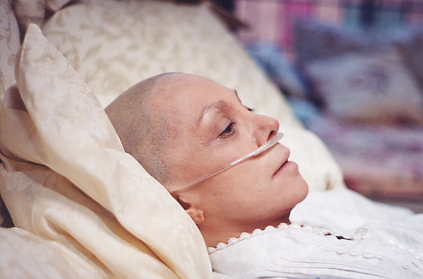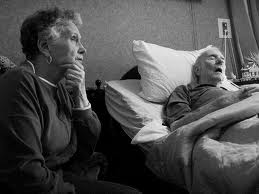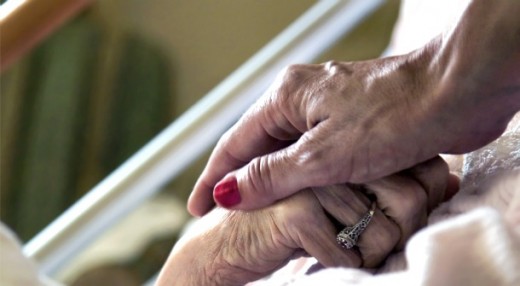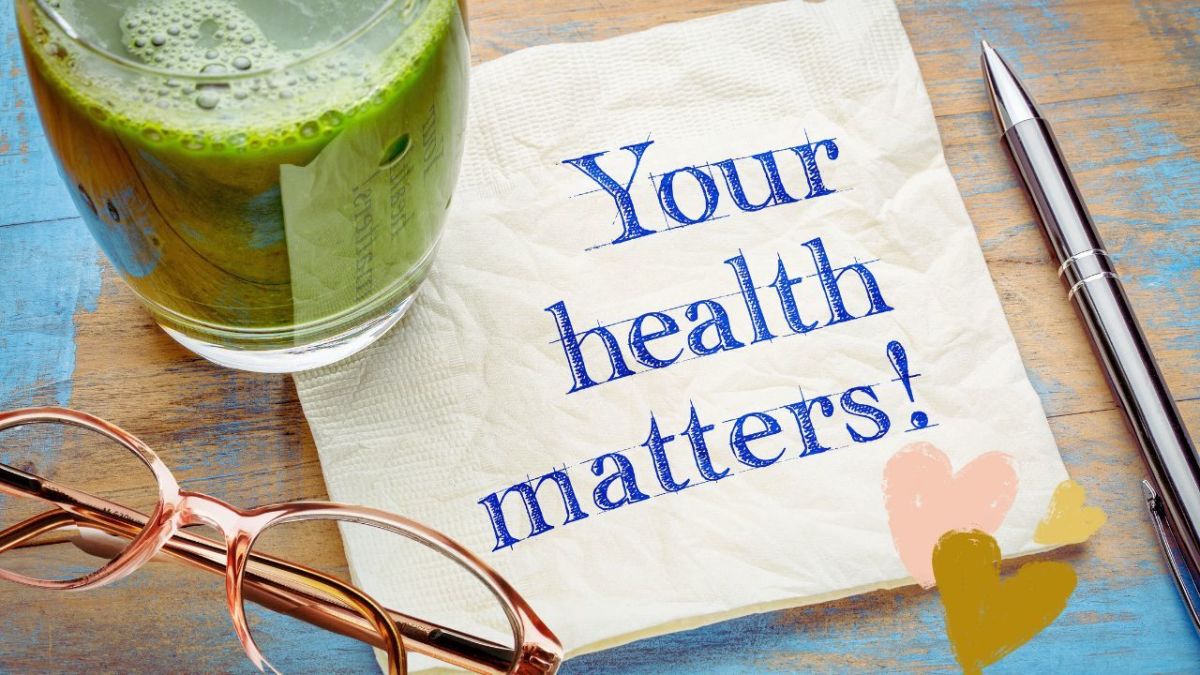Should Quality of Life Include the Right to Die?



"Right to Death" Debate
Have you ever thought about what you would do if you were diagnosed with a terminal illness? Would you fight with every ounce of being against the disease to prolong your life? Would you let nature take its course and leave this life when your illness takes you? Or would you prefer to avoid massive suffering for you and your family and choose your time of death?
Euthanasia in humans, also referred to as the physician-assisted suicide, has been a topic of heated controversy and debate for a long time. This is unfortunate for those who are suffering because there are other aspects of life that gives people the right to choose death.
A woman can become pregnant, decide that raising the baby is going to be an inconvenience, and have a doctor perform an abortion to kill that baby. If someone's 13-year old dog becomes ill with cancer, the owner can pay a veterinarian to euthanize the dog so there is little suffering. In states where capital punishment is still legal, the government can choose to end the lives of certain criminals. We have the right to smoke cigarettes, hence, increasing the chances of contracting cancer or other serious health-related issues. We even have the right to choose the DNR (Do Not Resuscitate) option and refuse life-saving techniques if that is the only way we will stay alive. This is an indirect choice to die, also known as the "Right to Die."
Playing God
Doctors are not here just to make us well and save our lives, but they are responsible for helping patients receive the quality of life they want for themselves. Doctors can only do so much in some circumstances, though. After a person hears the news that their illness is terminal, it changes their perspective on life.
Some terminal illnesses are tolerable, and the patient can live the rest of his or her life without terrible discomfort. Other illnesses, such as Amyotrophic Lateral Sclerosis (ALS, also known as Lou Gehrig's disease) is debilitating and can cause the patient to lose all control of bodily functions, including the ability to brush their own teeth and eat normal meals. Victims of ALS will need total medical and personal care before the disease claims their life. For more information on ALS, visit the ALS Association.
Religious advocates debate against the "Right to Die" because they believe it goes against God's plan for our lives. Tell this to a dying woman who has no enjoyment in life because of excruciating pain and endless pain medications.
I came across a video clip called "The Suicide Tourist." It is an interesting series about ALS sufferer Craig Ewert and his decision to end his life. If this topic is one that you have mixed feelings about, watch the video. It helped me obtain a better understanding about the "Right to Die."
Unnecessary Prolonging of Life
On the flip side, consider the story involving Teri Schiavo, who collapsed from cardiac and respiratory arrest in 1990. She suffered from irreparable brain damage from oxygen deprivation. Her husband did not want to keep her alive on a feeding tube because that was not what she wanted. Her family fought him in court and was able to keep her alive on life support for 15 years. Eventually, the court's decision was overturned, and Schiavo's feeding tube was removed, and she died a couple weeks later. An autopsy showed her brain was only have its normal size, and she had been kept alive for 15 years for nothing. If Schiavo's "Right to Die" had been respected, millions in healthcare costs could have been saved and used for patients that had a chance to live.
When there are no signs of recovery for the patient in a situation such as this, should there be mandated amounts of time set forth by law? Some people will disagree and say that goes against the patients right to have "quality of life"
Should people have the "Right to Die" if they become terminally ill?
The Final Step
Once a person makes the decision to end their life, they have to decide where to go to receive that type of help. Physician-assisted suicide is illegal in most parts of America, and many patients have to travel to other countries to receive assistance. The legalities of physician-assisted suicide is currently being addressed in the government. According to The Atlantic (1997), the Hippocratic Oath states that physicians are to "neither give a deadly drug to anybody if asked for it, nor make a suggestion to this effect." This oath was implemented at a time when doctors were commonly performing physician-assisted suicides for patients suffering from minor ailments such as foot infections, gall stones, and senility.
The most important thing to remember about physician-assisted suicide is that the patient is in charge of his or her choices all along. They have to be able to consent to the suicide and ingest the drugs themselves. In most cases of physician-assisted suicide, a cocktail of barbiturates is prepared and given to the patient to drink. Within a few minutes, the patient will become groggy and fall asleep. There is no suffering, and once the patient is asleep, the heart will stop and the patient will die.
In the event of terminal illness, is physician-assisted suicide a good choice? That is not for me to answer. I am not an advocate for physician-assisted suicide. I believe in a person's choice to decide their own quality of life for themselves. As Craig Ewert explained in "The Suicide Tourist," his choice to die was made before he and his family had to endure more suffering. He was more concerned with the stress it would cause his family if he chose to stay alive.
Your right to decide your quality of life should be your right and no one else's.
My "Foster" Dad
I have known my "foster" dad, Ed, since I was a little girl. My parents were friends with him and his wife, and we attended the same church on a weekly basis. Ed's son was a good friend of mine and my brother's. I loved these people and time moved us all across the country from each other.
About ten years ago, I ran into Ed out of the blue and quickly rekindled my friendships with his family.
Ed was diagnosed with a serious lung disease that would eventually cause his lungs to shed out the internal lining. At some point, his lungs would collapse just prior to death. Ed outlived the original estimated time of death and maybe lived a year longer than the doctors thought he would.
Ed was on oxygen full-time for at least a couple years before he passed away. Everyone knew he was going to die someday, it was just a matter of when. Right before he finally went to the hospital, he was spending 90% of his time in bed.
I got the call that he had been taken to the emergency room because he was having some complications. The phone call came from Ed's daughter-in-law, who is one of the ditziest women I have ever met, had me in a panic, like he was on his deathbed right then.
Ed's Final Request from Me
The last time I went and visited Ed and his wife, he gave me a good-bye hug (typical for Ed unless he was sleeping). This particular day, he held me a few moments longer and whispered quietly in my ear. "Please take care of mom, don't leave her alone." He made me promise, and I left crying because that was an odd request coming from Ed. We were close, but at the time I did not realize just how close we really were.
So, when the son's girlfriend called and said they had taken him to the hospital, I dropped what I was doing and immediately raced over to the hospital. I loved Ed immensely, and he must have been around 79 when he died, his wife was pushing 70. She cared for Ed until his final hospitalization and resulting death.
I got to the hospital and was immediately cleared to enter the emergency room where Ed was. They were already expecting me. I entered the room where Ed was, and paused, shocked at what I was seeing. He was sitting there, laughing with everyone and talking with a chest tube in him.
Have you ever had to watch a loved one die in the final stages of a terminal illness?
The Final Days
During that time, he became progressively weaker and had one lung that had collapsed. After two weeks, his other lung collapsed. There was no hope of recovery for him.
The day before his death, I received a call from his son saying they would be meeting with the doctors later that afternoon and gave me the time of the meeting. I left work early and went back to the hospital.
I walked into the ICU where Ed was being kept. He was completely sedated now and was unable to feed himself, talk, or do much of anything else. When I walked into his room, no one was there except a patient. When I looked at him, I noticed a very large and swollen man. Truthfully, I freaked out and wanted to know what they did with Ed, and who this man was in his place.
I backed out into the hallway and saw that I had the correct room number, so I walked back in. Before I flagged down a nurse, I glanced over at the windowsill and saw Ed's wife's Christmas sweater folded neatly on the ledge. Talk about freaking out. I looked back at the patient and realized it was Ed. His organs had begun to shut down the previous night, and he had begun to swell terribly. He looked like a light version of a sumo wrestler.
I was alone with Ed in his room and did not know where anyone was. I knew he was sedated but was sure he could hear some things. I walked over to him and put my hand on his shoulder and stood there. There were no words that could express anything at this point.
I leaned over and kissed his cheek and told him it was an honor growing up to know him, that I loved putting up the tree every year with his now 13-year old foster daughter while he watched from his chair, that I was glad we got to reunite later in life and got the opportunity to know each other again I told him I loved him and that I would keep my promise not to leave his wife alone. I spent several minutes alone with him rubbing his shoulder, and then I left to find his wife.
She was in a conference room with the doctors and her family members. She was crying into a Kleenex (the second time I ever saw her cry) and a chair had been saved for me next to her. I stayed with her throughout his death.
At first, when they took him off the breathing tube, she stayed in the hallway and sobbed. She could not stand to see it happen. Once they removed the breathing tube, Ed suffocated to death.
And sedated or not, he still sat up and attempted to get away. It was one of the most traumatizing things I have witnessed in my life. And, because he had been on oxygen for so long and had finally stopped taking any breaths at all, it took nearly two hours for his heart to finally stop beating.
He was a totally sane and coherent man throughout all of this. He knew what his fate would be. I supposed at any time, he could have chosen the "physician-assisted suicide" approach, but he chose stay alive as long as he could.That takes great faith and strength. He was a Believer of God and knew the way to the Kingdom of God.
Right vs. Wrong?
I felt the need to share this story to show what it is like for the families of patients who have to care for them until their deaths, to give an insiders point of view.
I feel it should be the patient's right to decide their way to die in a situation such as Ed's. He did choose how he wanted to die.
But, might it have been easier for his wife and family to have seen him in a state of mind where he swallows some medicine and just goes to sleep? No gasping for air, no panic in his eyes as he suffocates to death?
Whose right is it to decide?
Other Articles by Fellow Hubbers
This content reflects the personal opinions of the author. It is accurate and true to the best of the author’s knowledge and should not be substituted for impartial fact or advice in legal, political, or personal matters.
© 2011 Jennifer McLeod






